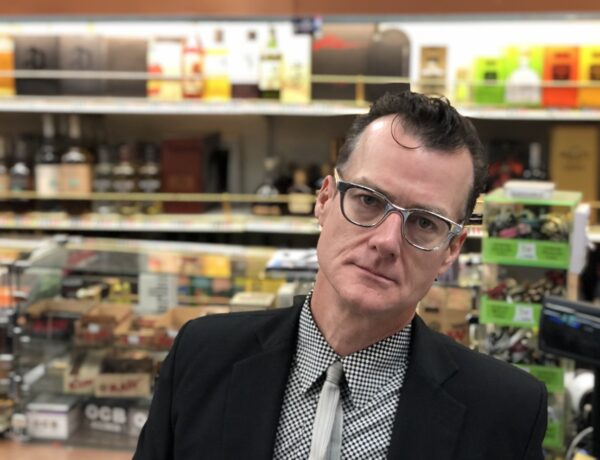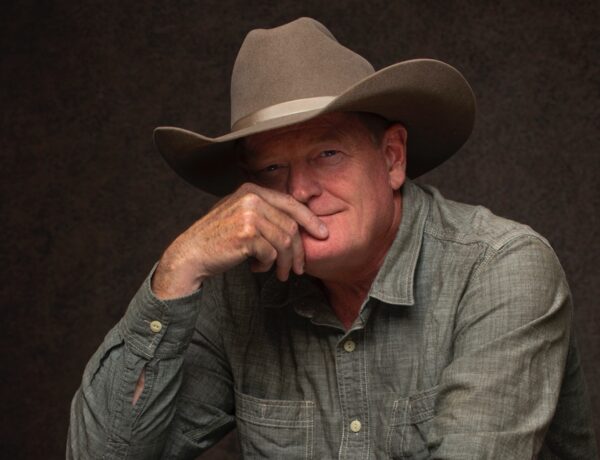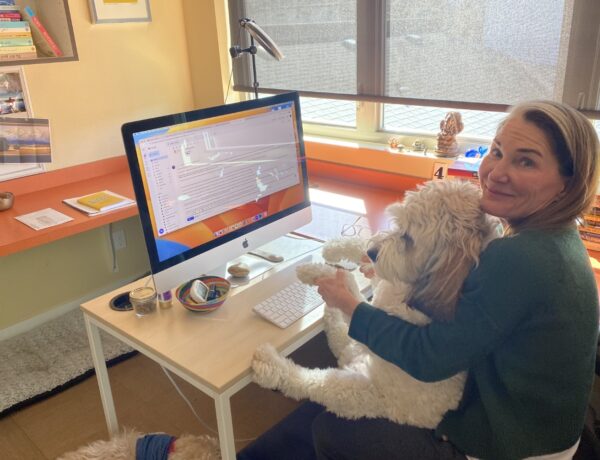Rowan Moore Gerety is a reporter and audio producer based in Phoenix, Arizona. His first book, Go Tell the Crocodiles: Chasing Prosperity in Mozambique, published in 2018, examines the rapid economic growth in Mozambique and its impact on people living on the margins.
Gerety has contributed to numerous prestigious publications, including the New York Times, Harper’s Magazine, and the Atlantic. His radio work has featured on NPR, BBC, Marketplace, and other notable networks, earning a 2019 Peabody award nomination. He is a Fulbright and International Reporting Project fellow, fluent in French, Haitian Creole, Portuguese, and Spanish.
Hi Rowan, for our readers who may not be familiar with your work, could you please give us a brief introduction to yourself?
I’ve always loved writing, and even more than that, reading, but didn’t give serious thought to working as a journalist until a few years after college. I studied anthropology and started working full-time as a journalist in 2011, when it became clear that the project that had landed me a Fulbright fellowship to Mozambique was gonna be impossible to pull off.
I was planning to study the links between the advent of cell phones (still pretty recent at that point) and migration to cities, and how those things affected people’s relationships to their families/hometowns. It turned out that I couldn’t really do the project without better local language skills (not Portuguese!) or data that the cell phone companies didn’t want to share, so I started freelancing, and ultimately wrote a book based largely on the reporting I did then. The book took a very long time to finish and come out, but I kept pitching stories and ultimately found my first jobs in public radio.
Can you tell us about your writing routine and how you manage to balance multiple projects at once?
Ah, “Routine.” It depends a lot on what I’m working on. In general, I try to save my mornings for more focused writing, but I’m not great at staying offline or resisting the temptation to take a little detour to do more research or reporting, so it often doesn’t work out that way.
When I have a deadline, I try to work on just that one thing in stretches of at least a full or half day, or clear my week to pull together a draft of a longer story. I’ve almost never had the experience of NOT working on a bunch of projects at once, but it helps to have them staggered a bit, so that I’m usually developing pitches for a handful of projects, writing the first draft of one or two, and revising/fact-checking/closing one or two.
Your book Go Tell the Crocodiles covers the complexities of life in Mozambique. Can you speak about your research and reporting process for the book?
In a funny way, the material in my book comes from some of the most undirected/open-minded reporting I’ve ever done. Because I was in a country where I’d only spent a short time, almost everything in Mozambique had this quality of newness and extra resonance for me—like what’s THAT about?
Once I had accepted that the social-science project I had wanted to do was past salvaging, I spent a lot of time talking to people and lingering on things I found interesting. Bento, the young kid I profiled who had moved to the capital city on his own at age 9, had started talking to me one day while I was locking up my bike, and we kept running into each other.
Another chapter came about because I was stranded in a small city in the north, Mocuba, one day, looking for a place to stay, and someone to Davane Monteiro. We got along right away, but he also turned out to be an entrepreneur whose life had been interwoven with the shift from radio, to cassette tapes, to CDs, to mp3s, in a way that I found fascinating. I hadn’t actually decided to turn my reporting into a book until I got home at the end of a year in Mozambique, when I felt I had a huge amount of reporting that I was unlikely to find a home for otherwise.
Can you discuss the role of language in your reporting and writing, specifically your fluency in multiple languages?
I’m definitely a reporter who got into it more for the talking to people than for the digging-through-archives (let alone staring at a blank screen!), and there’s very little I find more energising than trying to learn bits of a new language. I think it’s one of the best tools we have to accelerate getting to know a person or place on more than a surface level.
I’ve always loved hanging out at a market or in someone’s shop and just trying to see how far the conversation goes. I spent a formative year and a half in France when I was in high school, but I’ve also been very influenced by the experience of living in places with creole languages. I spent a year teaching English in Reunion island, a former French colony and now “overseas department” (like Hawaii) in the Indian Ocean.
When I was there, one of the central facts of recent history was that people my age had been exposed to far more French-language media than their parents’ generation, and so the local language, Reunionnese Creole, which had always had some French in its DNA, was starting to veer much closer to mainland French. And talking to people about it, especially people who grew up in primarily Creole spaces, there was a kind of grieving that went along with it—the sense that the dilution of Creole was also the dilution of an entire way of seeing the world, and I don’t think they were wrong.
I’ve also spent a lot of time in Haiti, and one of the classic mistakes I think foreigners make when they get to Haiti is thinking “Oh, French will help.” They’re not necessarily wrong, but that thought does misunderstand how much of Haitian culture expresses itself through the idiom of Kreyol. One of my favourite bits of Kreyol trivia is that the saying “pale franse”—literally, speaking French—actually means “telling lies.”
How do you incorporate audio storytelling into your work as a reporter and producer?
It’s been very cool to see how much different media have converged in the last decade or so—I got into radio journalism partly because it’s where I had some early good luck, so it’s where I saw a career path, but I’ve always loved magazines.
When I returned to freelancing in 2017, it was partly out of a sense that I wanted to give myself a shot at this other part of the craft. Now, six years later, that almost seems silly to write because there’s gotten to be so much overlap between those worlds. I do think writing for the ear makes you a better writer, partly because so many people who are listening to something are only half paying attention.
It’s common now to be asked to narrate a print article for audio or something like that, and it helps to have some practice reading aloud. I’ve also started doing a good amount of story editing for audio projects, and I’ve been amazed at how much fun it can be to interact with the same basic task—how to tell a clear, compelling story—from a totally different vantage point.
Your work has appeared in a diverse range of publications, from the New York Times to Scientific American. How do you adapt your writing style to different outlets and audiences?
One of the best pieces of advice I got early on was to read the publications you wanted to write for. I used to actually go to the library now and then to flip through all the magazines there, but Twitter (RIP) has also been an incredible curation tool in this way – follow writers you like, read their work, and you start to get a sense of what makes a given story work in Wired or Esquire or the Atlantic or some combination thereof. So there’s that. And then there are editors, who never get enough credit, and who do a lot of the heavy-lifting of shaping a piece by advocating for the reader – what will they want to know? What are the themes that make up the background to the narrative you’re trying to build?
How do you see the role of journalism in shaping public understanding and perception of global issues?
I have such admiration for journalists around the world. There are so many versions of the job that are just far more difficult, or more dangerous, than the way I make a living, and I think you can see the value of journalism largely by looking at who has it out for those people.
Everywhere where you see phones being hacked by governments, or people being imprisoned on bogus charges, or facing death threats, or spurious lawsuits, journalists are usually pretty high on the list, right after activists or opposition politicians.
Of course, most of the field is not that. Most of the field is more about adding one more data point to the way people understand something than it is about getting a specific law changed. And in a lot of cases, certainly in mine, it’s consumed more as a form of entertainment; I do think that can be a problem – you can see how that can warp the business models that sustain good reporting – but I think you also just have to believe that even if you’re competing for people’s time with CandyCrush or Netflix, any time people spend learning about the real experiences of other humans (or other creatures) is a win. And you do need to find some way to pay for it.
One of the funny experiences that I think most journalists have had is talking to someone who professes to hate the media or not trust reporters, or etc etc, and then find that Yes, in fact, they are still willing to spend an afternoon with you talking through some of the most difficult experiences in their lives.
So for all the media-bashing that goes on, I still think there’s a bedrock sense in most places that it’s important to hold power to account and try to tell real stories, and regular people are usually pretty generous with people who are trying to do that..?
What does your writing workspace look like?
My wife and I trade home offices about every six months or so. Right now, I’m in the “nice” office, which has a door that lets out onto our backyard. There’s a big bulletin board and a drum set and a big shelf full of fabric and an old standing desk from a pharmacy that mainly serves to make me feel guilty for not standing more often. Most of the time I sit at a wide glass desk, though I do swear by any chair that does not have a back!




No Comments